American history has been profoundly shaped by remarkable women who broke barriers, fought for justice, and changed our nation forever. These trailblazers faced enormous challenges yet persevered with extraordinary courage and determination. Their achievements span politics, civil rights, aviation, business, and more – leaving legacies that continue to inspire us today.
1. Martha Washington
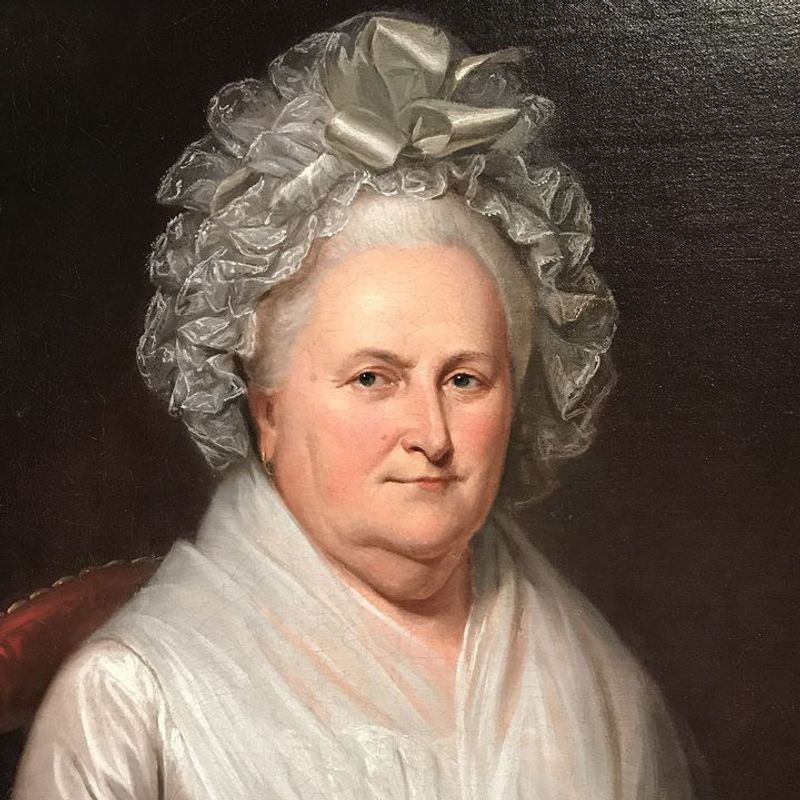
Before there was a White House or even a United States, Martha Washington set the standard for every First Lady who would follow. During the Revolutionary War, she spent winters at military encampments with George, boosting troop morale during the darkest days of the conflict.
Martha managed the presidential household in New York and Philadelphia, hosting dignitaries with gracious diplomacy. Though she burned their correspondence after George’s death, history remembers her strength during America’s uncertain beginnings.
2. Sojourner Truth
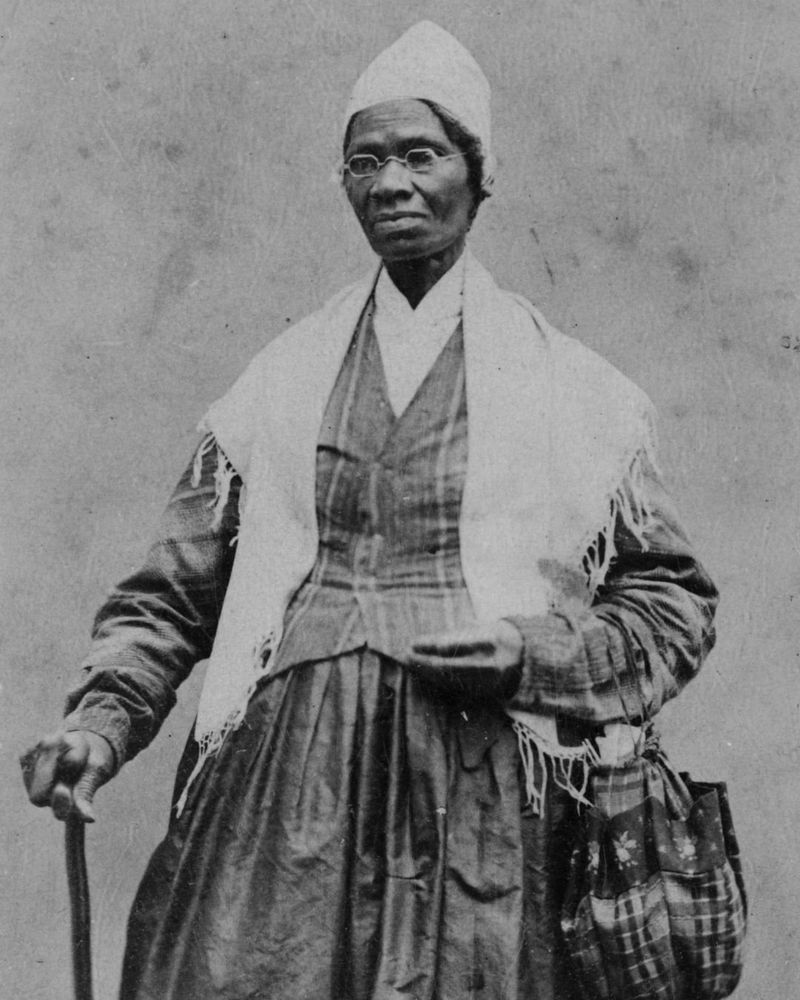
Born into slavery as Isabella Baumfree, she escaped with her infant daughter and later successfully sued to recover her son from illegal bondage – one of the first Black women to win such a case against a white man.
After experiencing a spiritual calling, she renamed herself Sojourner Truth and became a powerful orator. Her famous “Ain’t I a Woman?” speech at the 1851 Women’s Rights Convention challenged both racism and sexism, demonstrating how the movements for abolition and women’s rights were inseparably linked.
3. Elizabeth Cady Stanton
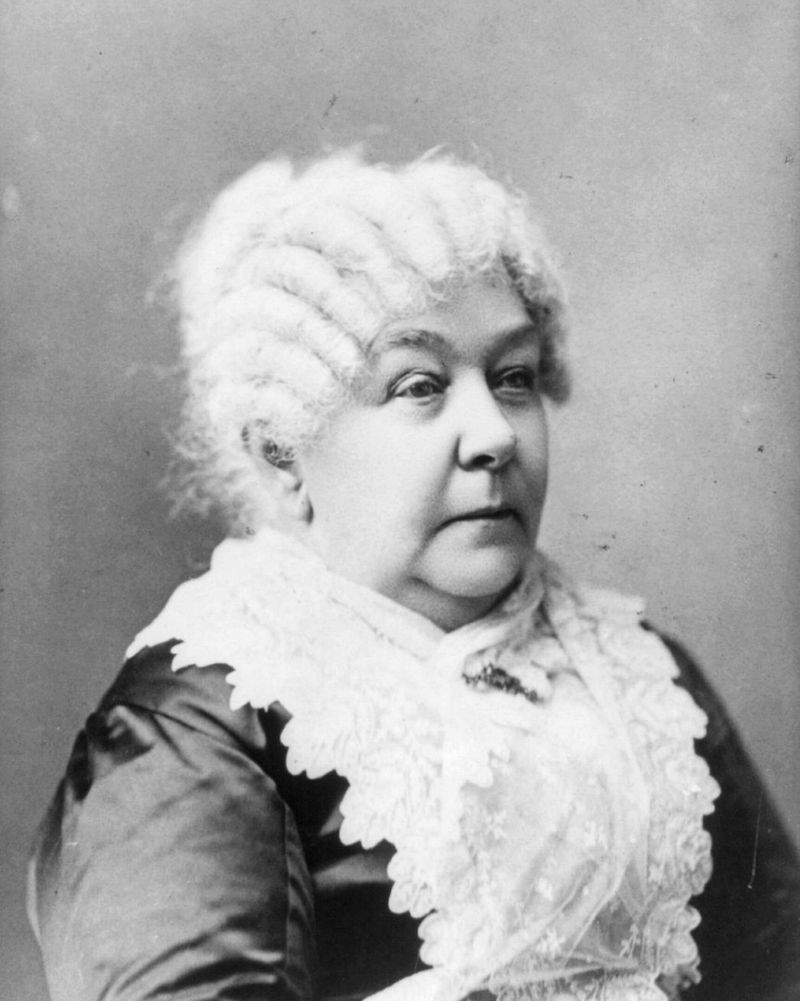
With a rebellious spirit from childhood, Elizabeth Cady Stanton refused to accept women’s second-class status in 19th century America. She organized the 1848 Seneca Falls Convention – the first women’s rights conference – and co-authored the Declaration of Sentiments modeled after the Declaration of Independence.
For over fifty years, she fought tirelessly for women’s voting rights, property rights, employment opportunities, and divorce reforms. Though she didn’t live to see women gain the vote, her intellectual leadership shaped the movement that would eventually succeed.
4. Harriet Tubman
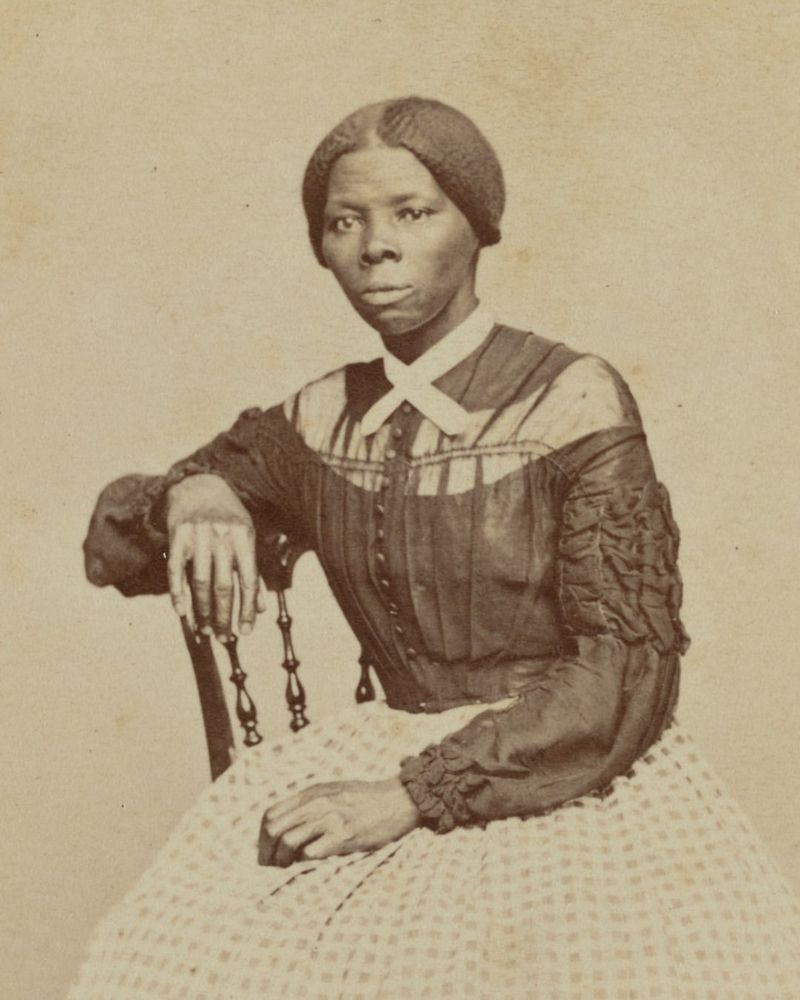
After escaping slavery herself, Harriet Tubman returned to the South approximately 13 times to lead around 70 enslaved people to freedom through the Underground Railroad. She carried a pistol for protection and to prevent anyone from turning back and endangering the entire group.
During the Civil War, she served as a Union scout, spy, and nurse. Later in life, despite poverty and illness, Tubman established a home for elderly African Americans. Her extraordinary courage made her one of the most famous conductors on the Underground Railroad.
5. Amelia Earhart
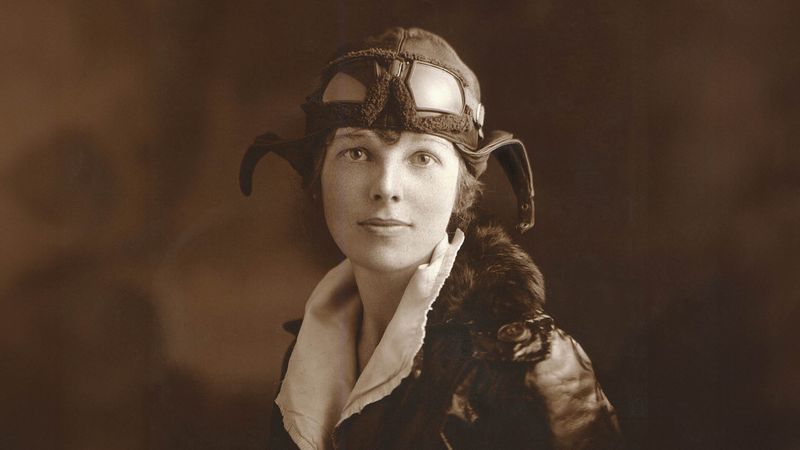
Fascinated by flight after attending an air show, Amelia Earhart worked multiple jobs to save enough for flying lessons. She quickly shattered aviation records, becoming the first woman to fly solo across the Atlantic in 1932, receiving the Distinguished Flying Cross from Congress.
Beyond her cockpit achievements, Earhart designed a clothing line, wrote best-selling books, and co-founded an organization for female pilots. Her mysterious disappearance during her 1937 around-the-world flight attempt has never been solved, but her legacy as an aviation pioneer and symbol of female determination endures.
6. Madam C.J. Walker
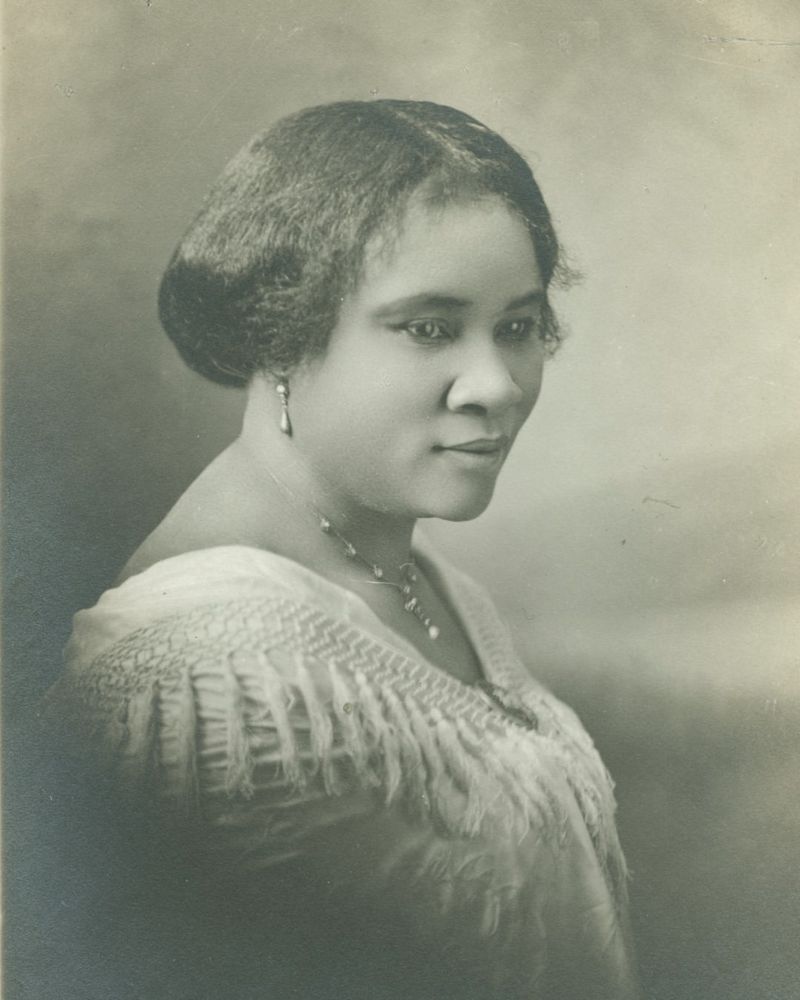
Born to formerly enslaved parents, Sarah Breedlove (later Madam C.J. Walker) developed hair care products for Black women after experiencing her own hair loss. Starting with door-to-door sales, she built a business empire employing thousands of women as sales agents.
Walker created opportunities when society offered few, establishing beauty schools to train women for economic independence. Her philanthropy supported anti-lynching campaigns, educational scholarships, and the NAACP. Walker’s remarkable rise from laundress to millionaire entrepreneur made her a pioneering figure in American business history.
7. Susan B. Anthony
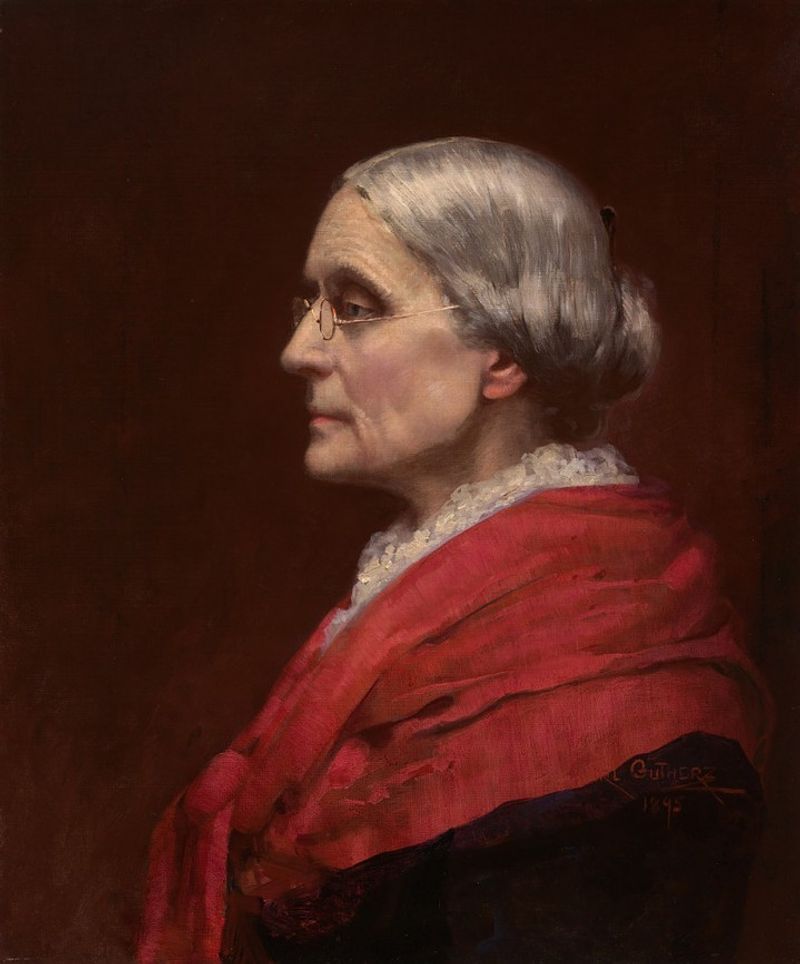
“Failure is impossible” became Susan B. Anthony’s rallying cry during her decades-long fight for women’s voting rights. In 1872, she was arrested for casting a ballot in the presidential election – an act of civil disobedience that brought national attention to the cause.
Anthony traveled the country giving speeches, organizing campaigns, and publishing a women’s rights newspaper called The Revolution. Though she died 14 years before the 19th Amendment was ratified, her relentless advocacy was instrumental in securing American women’s right to vote.
8. Clara Barton
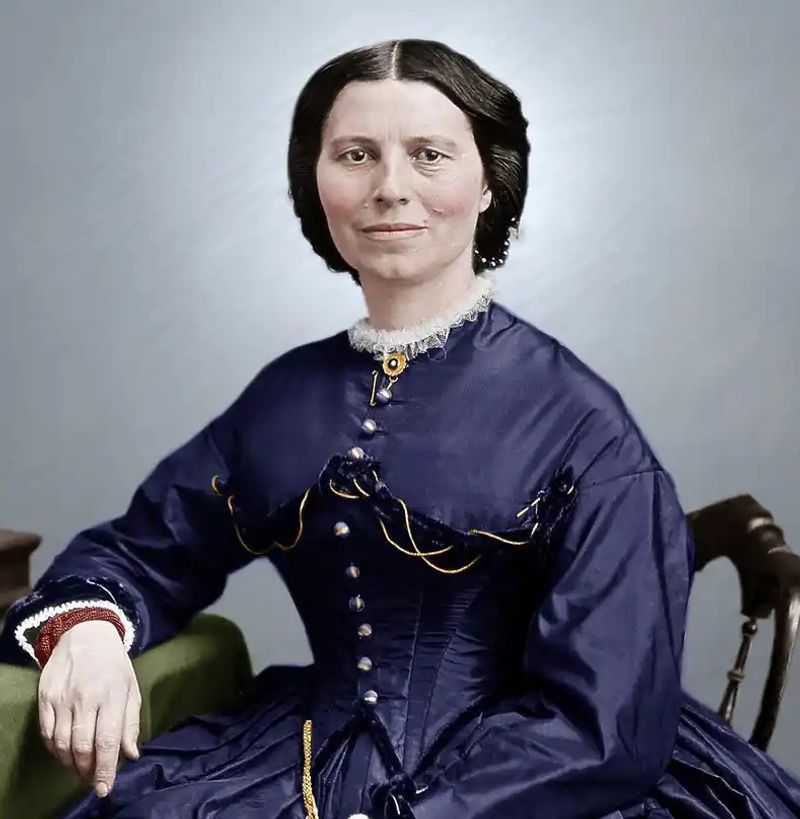
When the Civil War erupted, Clara Barton didn’t wait for permission to help wounded soldiers. She gathered medical supplies on her own initiative and headed to the frontlines, where she nursed casualties amid gunfire and chaos.
After the war, Barton traveled to Europe, where she learned about the International Red Cross. Returning home, she founded the American Red Cross in 1881. Her organization expanded beyond wartime aid to assist in natural disasters like floods and hurricanes, establishing a humanitarian legacy that continues saving lives today.
9. Ida B. Wells
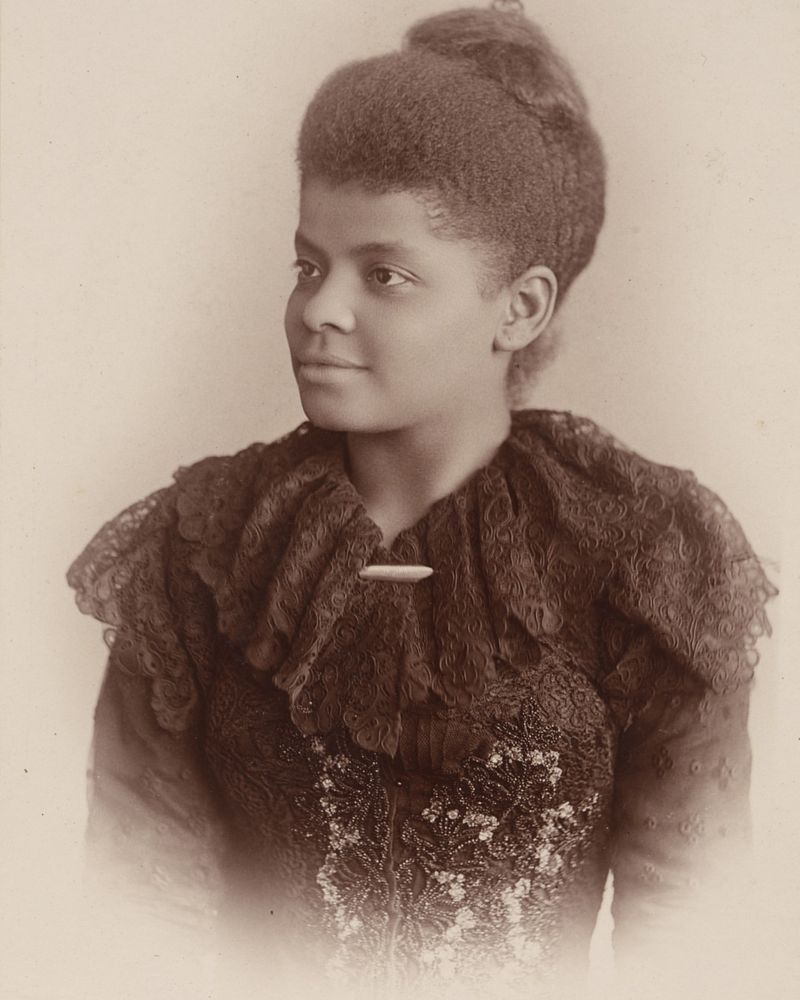
After three of her friends were lynched in Memphis in 1892, journalist Ida B. Wells launched an anti-lynching campaign that would define her life’s work. Her newspaper office was destroyed by a mob while she was traveling, forcing her into exile in the North.
Wells meticulously documented lynchings, disproving the common excuse that they punished Black men for assaulting white women. Her investigative reporting revealed the true motivation: economic competition and racial control. Despite death threats, she continued exposing this brutal practice, co-founding the NAACP and inspiring generations of civil rights activists.
10. Jane Addams
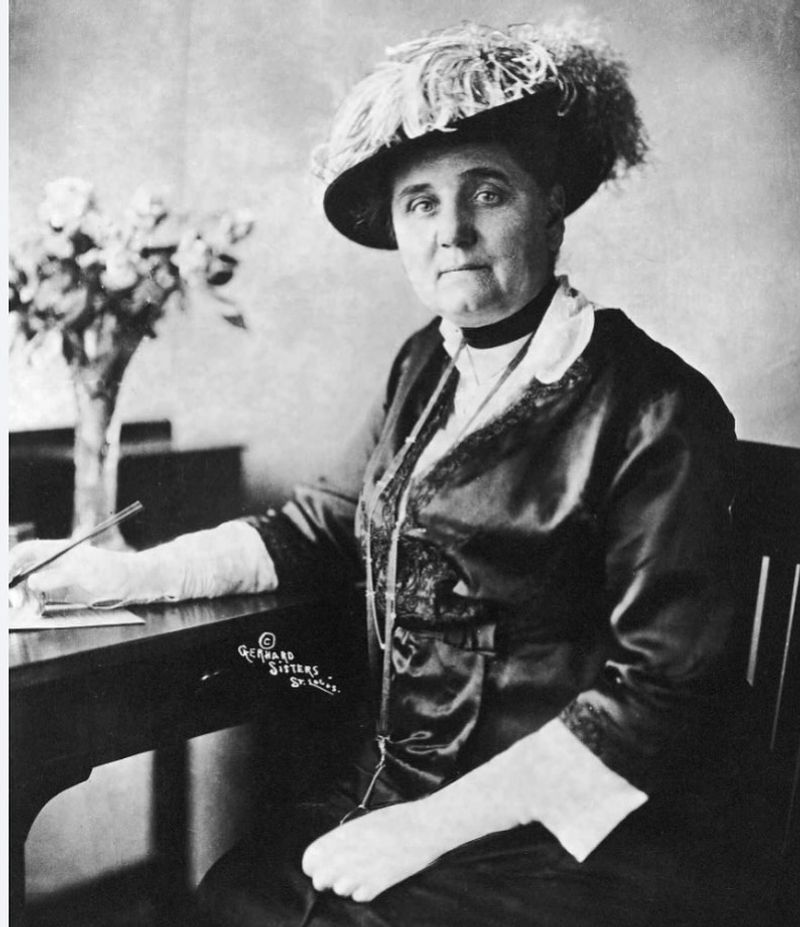
Shocked by the poverty she witnessed in Chicago’s immigrant neighborhoods, Jane Addams co-founded Hull House in 1889. This settlement house provided childcare, education, healthcare, and cultural activities to immigrant families struggling to adapt to American life.
Addams advocated for child labor laws, women’s suffrage, public health reforms, and immigrant rights. Her peace activism during World War I earned her criticism from those who questioned her patriotism. Vindication came in 1931 when she became the first American woman to receive the Nobel Peace Prize.
11. Jeannette Rankin
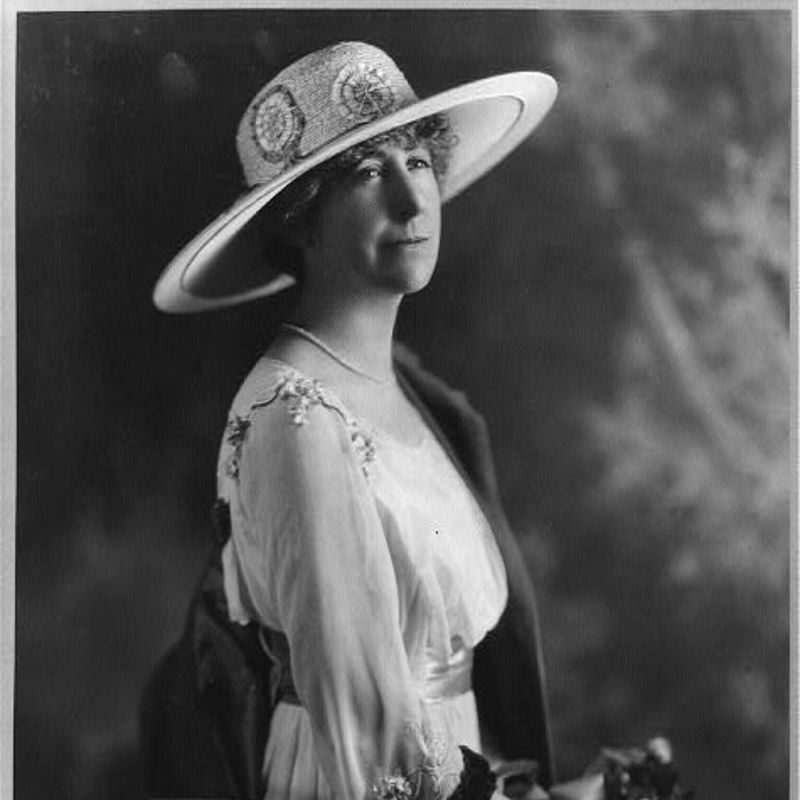
“I may be the first woman member of Congress, but I won’t be the last,” declared Jeannette Rankin upon her historic 1916 election – four years before women nationwide could even vote. A dedicated suffragist from Montana, she helped her state grant women voting rights in 1914.
Rankin’s political courage was remarkable – she voted against U.S. entry into both World Wars, standing alone in opposing WWII after Pearl Harbor. Between congressional terms, she advocated for child welfare, women’s rights, and peace activism, demonstrating unwavering commitment to her principles despite intense political pressure.
12. Helen Keller
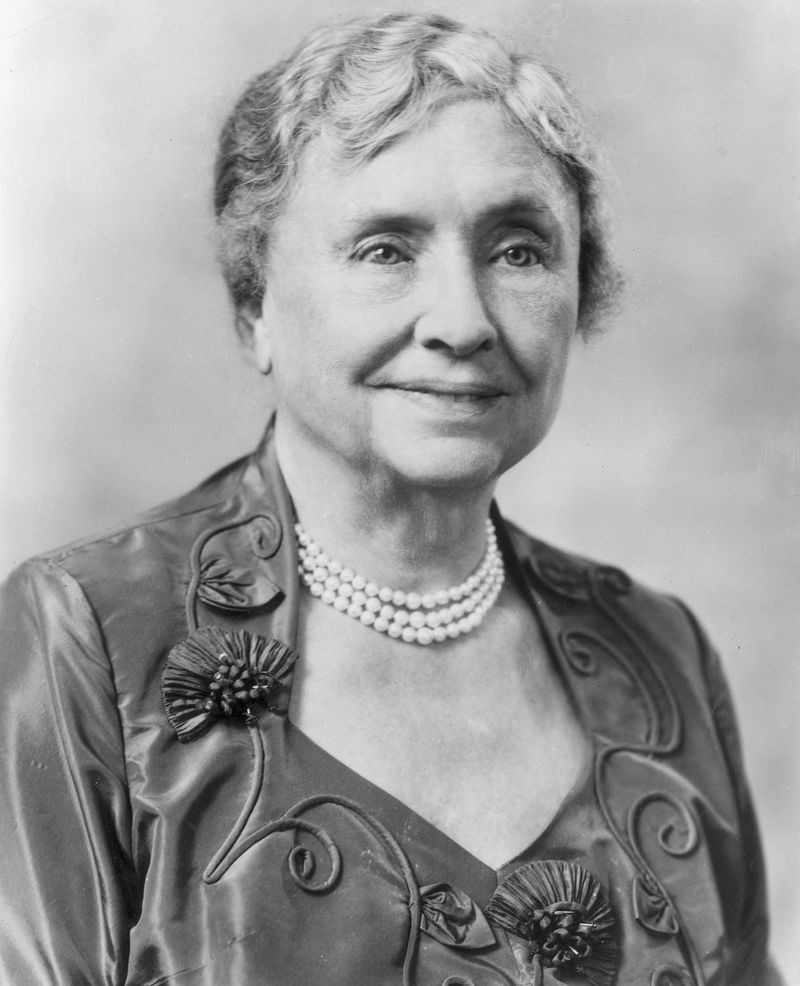
Struck by illness at 19 months that left her deaf and blind, Helen Keller’s world was transformed when teacher Anne Sullivan helped her make the connection between objects and finger-spelled words. This breakthrough unlocked her extraordinary mind.
Keller graduated from Radcliffe College with honors in 1904, mastering multiple communication methods including touch-lip reading and typing. Beyond her personal achievements, she became a global advocate for people with disabilities, women’s suffrage, and labor rights. Her life demonstrated that physical limitations need not constrain human potential.
13. Rosa Parks
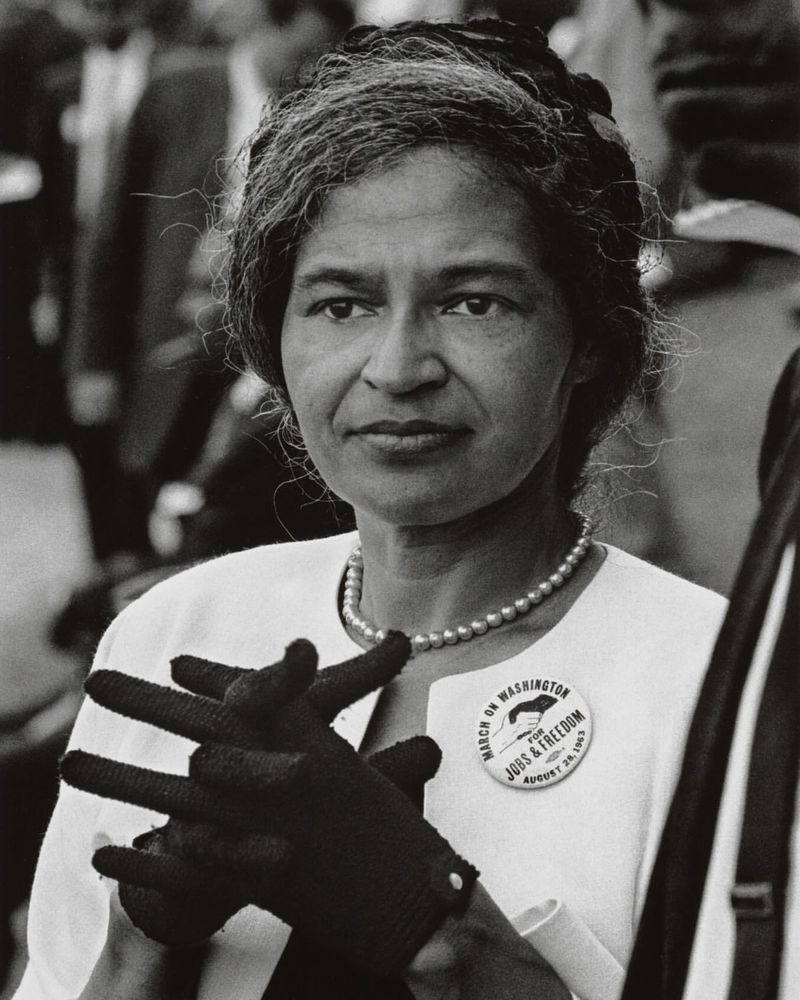
The simplified story that Rosa Parks was simply tired after work misses the truth of her deliberate activism. Before her famous bus arrest, Parks had spent years as secretary of the Montgomery NAACP and had attended civil rights training at the Highlander Folk School.
Her refusal to give up her seat on December 1, 1955, sparked the Montgomery Bus Boycott, which lasted 381 days and ended segregation on public transportation. Parks faced harassment and unemployment after her arrest, eventually relocating to Detroit. Her quiet dignity and principled stand made her an enduring symbol of resistance to injustice.
14. Ruth Bader Ginsburg
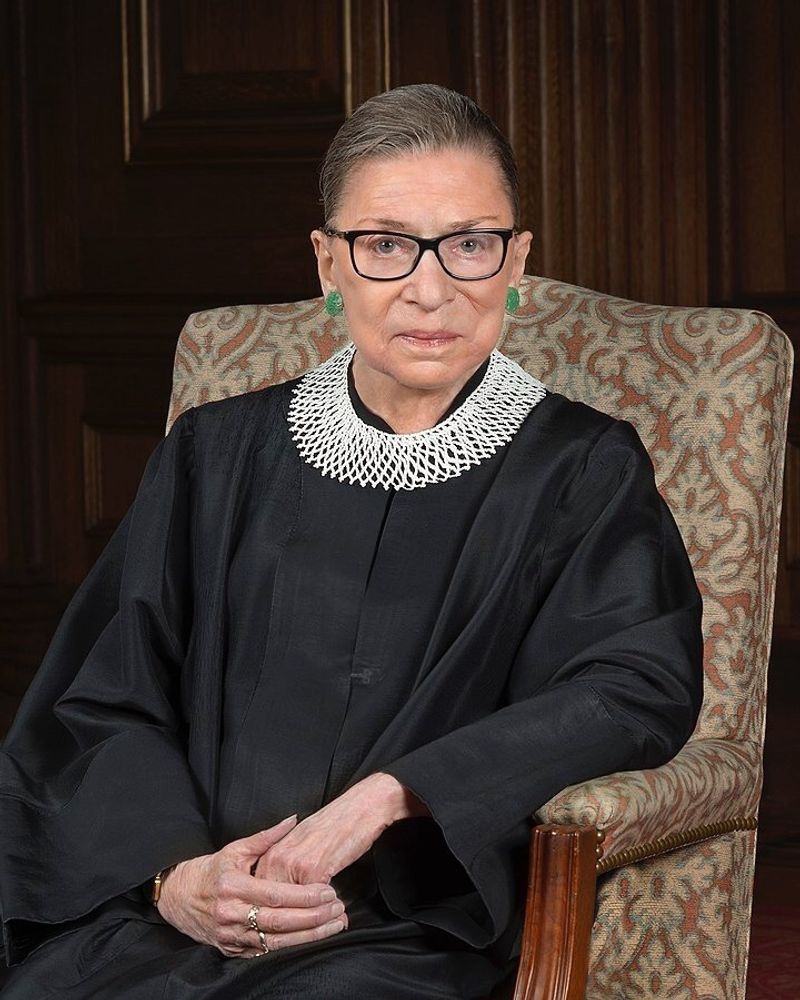
Before becoming the second woman on the Supreme Court, Ruth Bader Ginsburg methodically dismantled gender discrimination as an ACLU attorney. Her brilliant strategy involved representing male plaintiffs to demonstrate how sexism harmed everyone, winning five of six cases before the Supreme Court.
Appointed to the Supreme Court in 1993, Ginsburg became known for powerful dissents that often sparked legislative change. Her workout routine, stylish collars, and pop culture status as “Notorious RBG” made her an unlikely icon in her 80s. Her legal legacy transformed women’s rights in education, employment, and financial independence.
15. Gloria Steinem
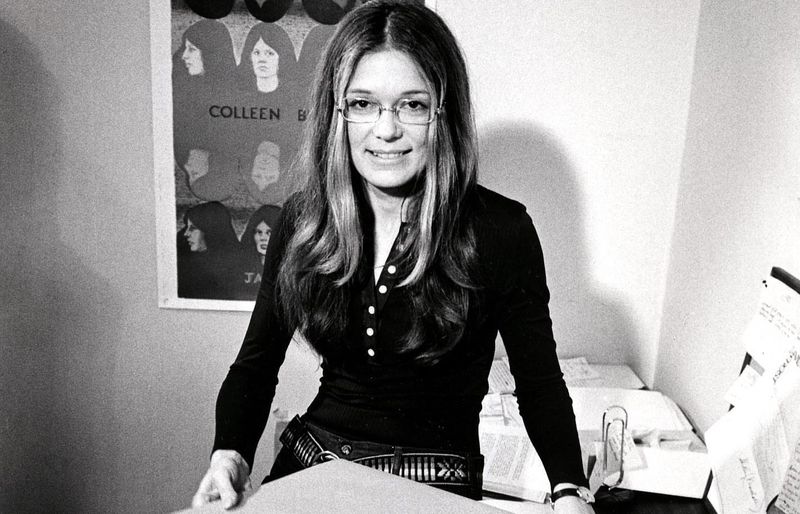
After going undercover as a Playboy Bunny to expose exploitative working conditions, Gloria Steinem emerged as a leading voice in the women’s movement. She co-founded Ms. magazine in 1972, creating a platform for feminist ideas when mainstream publications marginalized women’s perspectives.
Steinem helped establish the National Women’s Political Caucus and advocated for reproductive rights, equal pay, and ending domestic violence. Her engaging writing style and media savvy made complex feminist concepts accessible to mainstream audiences. At 89, she continues speaking out for gender equality across generations.

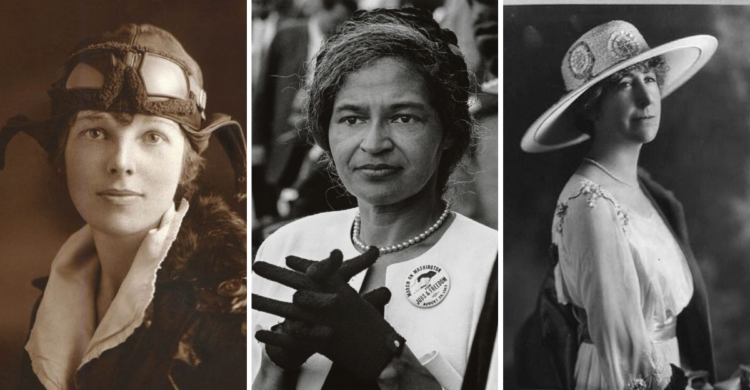
Comments
Loading…